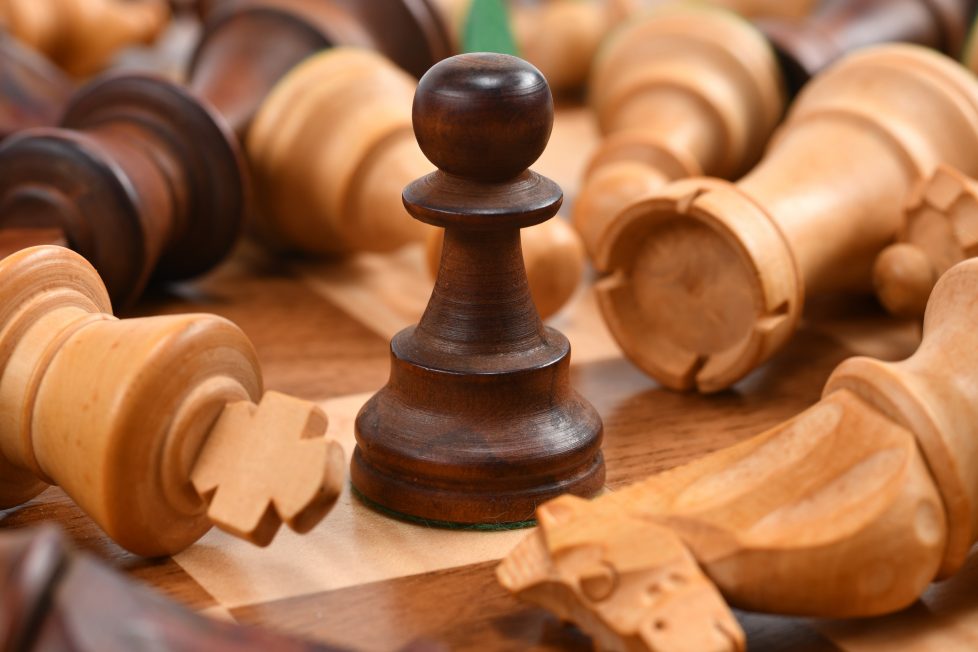Being taught chess badly
... at 5 years old, my 10 year old big brother taught my twin brother and I how to play chess.

... at 5 years old, my 10 year old big brother taught my twin brother and I how to play chess.

Originally published Nov 29th, 2018 on Medium
The most recent Chess World Championships left a lot to be desired. The challenger, Fabiano Caruana was risk averse in the 12 classic games, despite knowing that he was significantly outclassed by Carlsen in faster formats. Caruana’s game rarely budged from past games and computer generated strategies that he had memorized. Magnus Carlsen obliged, knowing that as soon as the games sped up he had a significant advantage.
This was demonstrated in the last game of the classic format. Caruana clearly had run out of memorized moves and despite Carlsen appearing to have a narrow path to end the game and also the series before the rapid format, when Caruana offered the draw, Magnus accepted. Carlsen’s end game was always to reach the rapid format. In the four Chess World Championship finals that Magnus Carlsen has played in, he has only lost two matches. By conceding 12 draws in the format that both are closely ranked, Fabiano also conceded his chance to become the first US World Champion since Bobby Fischer.
Magnus Carlsen swept Caruana in three rapid format games, keeping his title while going undefeated.
My disappointment in the 2018 series reminded me of all the games of chess I’ve lost. In no way, or shape would I consider myself a good chess player. I never aspired to great heights playing chess, but the fact that my play never rose beyond pedestrian is something that I blame my big brother for. You see, at 5 years old, my 10 year old big brother taught my twin brother and I how to play chess.
At the time, my big bro caught the chess bug. And like every other thing that Bri fell in love with — from playing with yo-yos, to his love of heavy metal when he became a teenager — my big brother was determined to make his two brothers fall in love with whatever he had fallen in love with.
There was always an obvious benefit for Brian — two guinea pigs to play with when he couldn’t play with his friends. If we liked what he liked, his boredom could be broken up by simply asking his little, obedient brothers to hang out with him. As a kid, there were definite bonuses to this. My twin and I regularly hung out with our brother and his older friends.
His friends were cool with us because, in those environments, we acted in a way that was acceptable — unlike their siblings around our age that they left at home. In elementary school I was a mess. I had a serious fear of adults and authority, but around kids 3+ years older than me, I felt at home. Many of my big brother’s friends became my friends. As a teenager, my twin and I even hung out with a young lady my big brother briefly dated.
My big brother has always had a knack for teaching. There’s no surprise that he grew up to become a school teacher. He spent his childhood teaching his little brothers. I would argue his best lesson was teaching his little brothers how to fit into various environments and give people the space to be comfortable interacting with us. I’ve definitely taken advantage of those lessons. Whether I’m loitering on a wall in a notorious neighborhood in Kingston, Jamaica as a teenager, or at literary galas as an adult, those lessons still guide me. His chess classes, however, left something to be desired.
Mind you, I was taught chess by a ten year old. As a teenager my twin joined a high school chess club, and I never did. There have been multiple opportunities that I could have used to right his wrongs. It wasn’t until last year, when I started following chess on Youtube, that I realized the fundamental mistake that ruined my life as a pedestrian chess player. What I learned was also an important life lesson.
After teaching his little brothers all the directions that the back row could move, and emphasizing their importance, Brian introduced us to the pawns. Bri was dismissive of the pawns saying, “These guys aren’t really worth much. Don’t worry if they die.” As an adult I realize he was wrong.
One could argue that the pawn is the most important piece on a chessboard. They can be used to guard the more dynamic pieces. They can strategically dive deep into your opponents half of the board as well. More importantly, the pawn is the only piece on the board that can be promoted.
Unless you are wealthy, a military officer, a member of the clergy, or royalty the piece that most closely represents you on the board is the pawn. As with the game, unlike those of higher class, we all have the potential to be promoted into powerful positions. Just like in chess, it takes strategy, research, hard work, forethought and a bit of luck, but understanding that possibility makes us the most important pieces on life’s chess board.
It only took me 35 years to figure out why my big brother told me that, “Chess is a metaphor for life.” I don’t think that ten-year old him really understood what that meant. If he did, I would be a far greater player than I am today.
